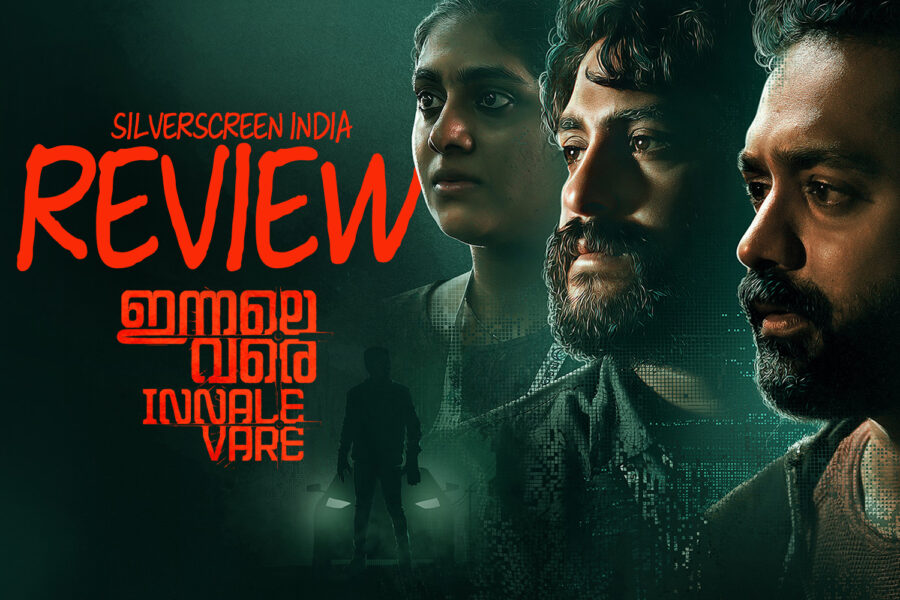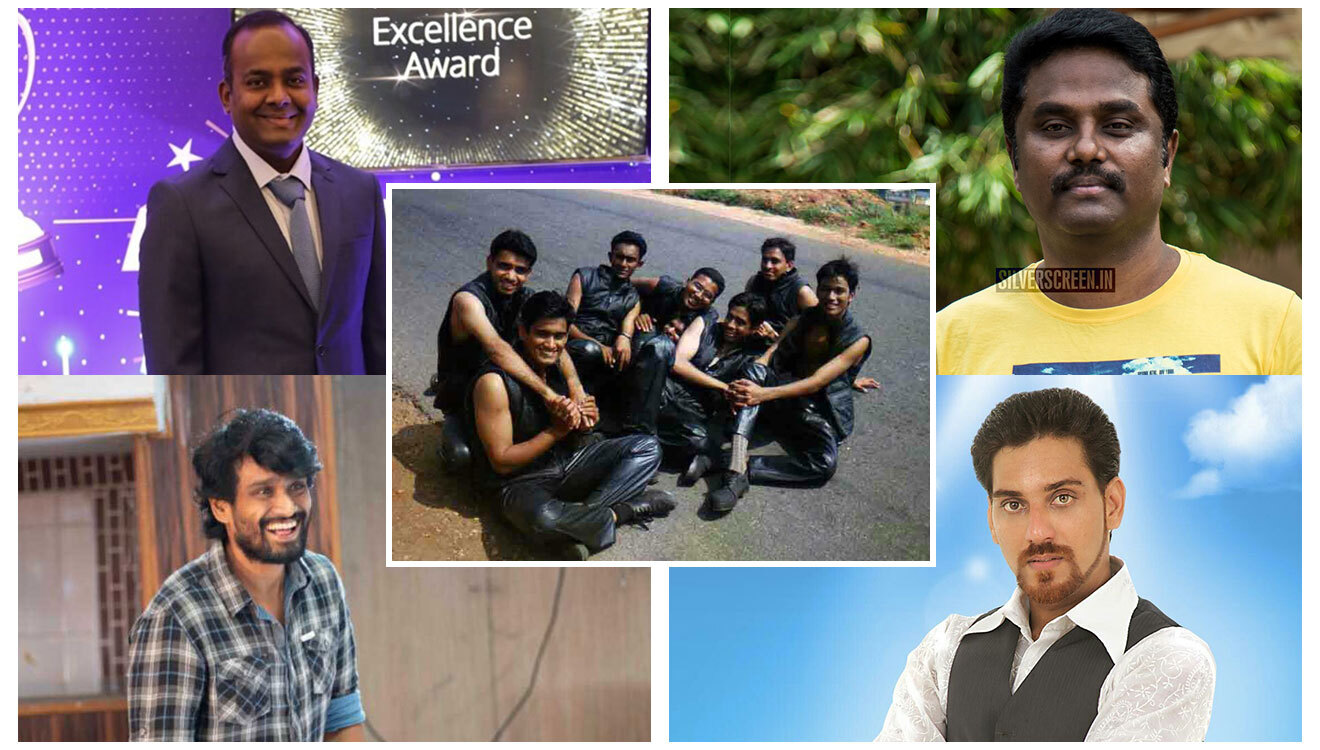Director Jis Joy is known for films that romanticise the middle-class way of life, where material and emotional problems are solved by spiels about love and other virtues flattened out into a greeting card. Innale Vare, his latest, was touted to be a different kind of film, darker and wicked, one in which the characters did not revel in nostalgia. To an extent, the film is a departure from the usual Jis Joy. Instead of using an excess of fairy lights in the background of scenes, he and his cinematographer Bahul Ramesh shoot everything in a bluish-green filter ﹣a tacky time travel to the early 2000s ﹣without differentiating between a crime scene and a cheerful family space. The characters lie, betray and try to get the better of one another. They cuss a lot, in English, the language of the refined upper-class. And there is some show of blood.
Yet, Innale Vare is, essentially, cut from the same cloth as Jis Joy’s former films like Sunday Holiday, Bicycle Thieves and Vijay Superum Pournamiyum. Do not be tricked by the colour palette and the flaunting of the shadows. This film is pivoted on the same moral values as the other movies. It begins as a tirade against the morally corrupt elite class and quickly builds into a lesson on the effects of greed and worse, an ugly warning to society on the side effects of the Me Too movement. Why would not you believe the man, it asks the viewers through a story that eerily resembles a recent case of Me Too in the Malayalam film industry. Of course, the conception and making of Innale Vare precede the case. But the resemblance proves how typical sexual harassment cases and the responses of the patriarchal society to them can be.
Look at Aishu (Reba Monica), the girlfriend of Adhi (Asif Ali), a superstar actor and a well-known philanderer. Aishu perfectly fits into Jis Joy’s movie universe ﹣a pretty and homely girl who dares to launch a business venture but would not marry a man without her family’s consent. She is a cliche, the purest figure in the film. At the same time, Karthika, a former actress Adhi is having an illicit affair with, is shot in a largely negative light, as a vamp who mistreats her domestic help and betrays her soft-spoken husband.
Nevertheless, none of these ideas come off strongly in the narrative thanks to Jis Joy’s inept filmmaking that reduces everything into a heap of plastic. His imagination of the morally corrupt life of the elite class is awfully plain, reminiscent of films like Chaappa Kurishu and Traffic which were made in the early 2010s when Malayalam cinema was waking up to the ugly side of rampant urbanisation in Kerala. Neither Adhi’s lifestyle nor the trap he falls into come across as nuanced or convincing. The way Jis Joy stages the scenes, frames the images and writes the dialogue reeks of unoriginality. Anjali’s allegation of sexual harassment against Adhi is constructed as a clumsy act of blackmail, as though to say that men, in the era of Me Too, are always under threat no matter how flimsy the charges against them might seem.
The plot is a jumble of highly contrived sequences. Adhi, rushing to meet his girlfriend who had been crying on the phone about a medical emergency, decides to stop and indulge an excited fan. If you don’t find this odd, wait for the scene that follows, where he walks into her trap, climbing three flights of stairs of a rundown apartment to meet her husband whom he could have just met somewhere else. Innale Vare pretends to be a smart, twisted thriller in this part but comes across as implausible and foolish. Sharath/Vinod (Antony Varghese), an IT expert, using edited and distorted pieces of Adhi’s voice clips to digitally impersonate him, is too far-fetched an idea. Forget his many girlfriends and assistants, but none of the loan sharks to whom Adhi owes money try to trace him for a long time. These implausibilities would not have mattered so much in a different, better film where sequences were stitched together seamlessly in style. Here, the erratic pacing ensures that you notice every glitch and folly.
Recommended
The high-profile cast, unfortunately, does not help the film either. Antony Varghese, who was a riot in Angamaly Diaries and equally effective in Jallikattu and Ajagajantharam, looks lost in the new surroundings where the most acute malady is not toxic and loud masculinity. In the final sequences where Adhi gets the better of his antagonists, Antony grinds his teeth to a counterintuitive comic effect, unable to decide how to express himself in a film where he is playing the victim and not the perpetrator. Nimisha Sajayan’s face has been screaming “I have been wronged” for too long, in film after film, and it has started to look like passive repetitions. She is effective as Anjali, but she is not memorable. Asif Ali, who delivered a sublime performance earlier this month in Rajeev Ravi’s Kuttavum Shikshayum, returns to loud, unidimensional style of acting here. Ali mistakes arrogance as a sort of a skin rash, turning Adhi into a perennially annoyed little boy incapable of scheming or protecting himself. Innale Vare has Jis Joy, finally, channelling some of his disagreements with the film industry and the class of celebrities, but his tools are too blunt to leave a strong impression.
*****
This Innale Vare review is a Silverscreen original article. It was not paid for or commissioned by anyone associated with the movie. Silverscreen.in and its writers do not have any commercial relationship with movies that are reviewed on the site.



